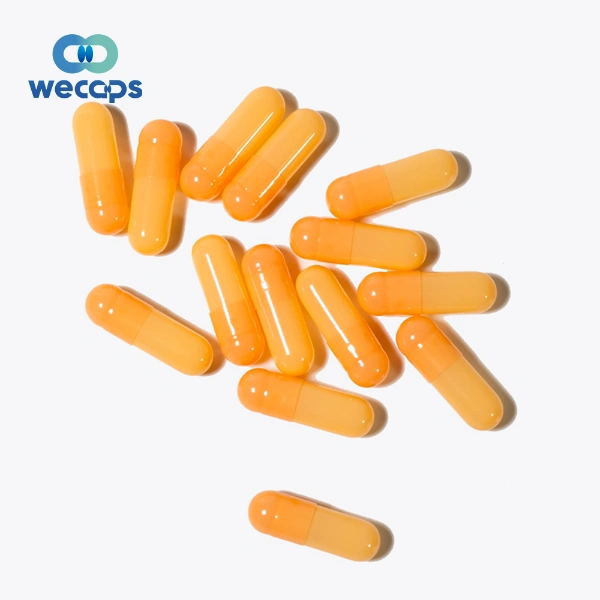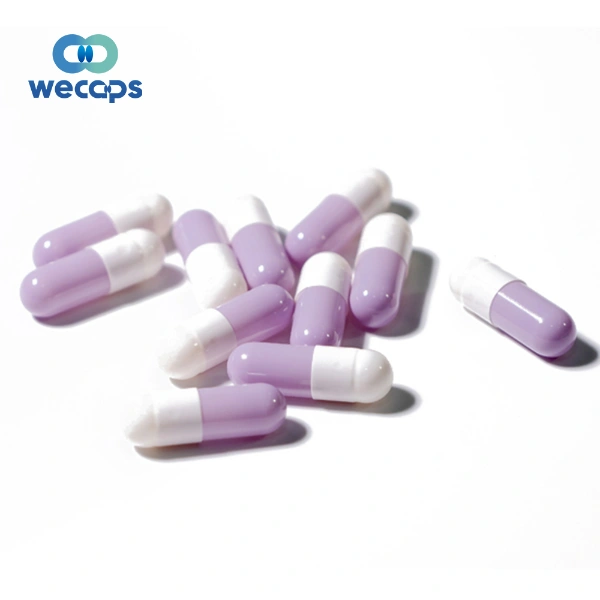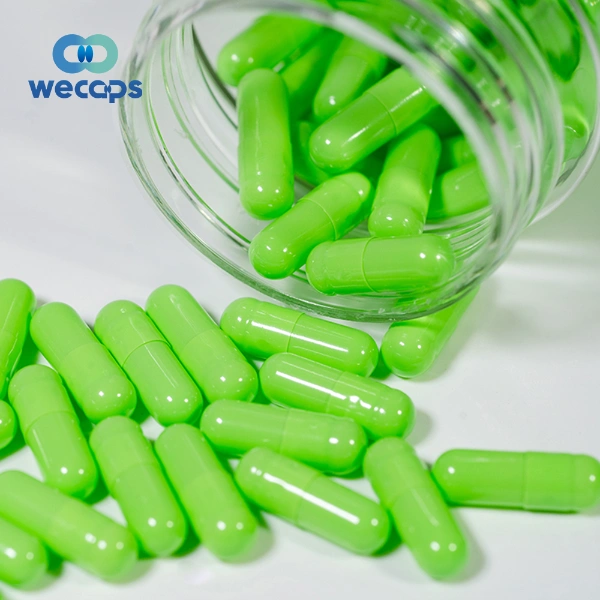Solubility of Empty Enteric Coated Capsules: A Comprehensive Guide
Article source:Wecaps Apr 25, 2024 1003
In the pharmaceutical industry, the solubility of empty enteric coated capsules is a critical factor that determines the effectiveness and safety of oral medications. Enteric coated capsules are designed to protect sensitive drug substances from the harsh acidic environment of the stomach and release the medication in the more alkaline environment of the small intestine. This feature is particularly important for drugs that can cause irritation to the stomach lining or are inactivated by stomach acid. In this blog post, Wecaps will delve into the factors affecting the solubility of empty enteric coated capsules for sale, the importance of solubility in drug delivery, and the methods used to test and ensure the quality of these capsules.
Understanding Enteric Coating
Enteric coatings are made from a variety of polymers that are resistant to the acidic conditions of the stomach but dissolve or disintegrate in the more alkaline environment of the small intestine. Common materials used for enteric coatings include:
- Cellulose acetate phthalate (CAP)
- Hydroxypropyl methylcellulose phthalate (HPMCP)
- Polyvinyl acetate phthalate (PVAP)
These materials are chosen for their ability to control the release of the drug and their compatibility with the human gastrointestinal (GI) tract.
Factors Affecting Solubility of Empty Enteric Coated Capsules
1. Coating Material: Different polymers have varying solubility profiles and pH sensitivity, which can affect the dissolution time of the capsule.
2. Coating Thickness: The thickness of the enteric coating can impact the rate at which the capsule dissolves. Thicker coatings may take longer to dissolve.
3. Capsule Size and Shape: Larger or irregularly shaped capsules may have a different dissolution profile compared to smaller, more uniform capsules.
4. Storage Conditions: Temperature and humidity can affect the stability and solubility of the enteric coating.
5. Manufacturing Process: The method of applying the enteric coating and the quality control measures in place can influence the uniformity and integrity of the coating.

Importance of Solubility of Empty Enteric Coated Capsules in Drug Delivery
1. Protecting the Drug: The primary function of the enteric coating is to protect the drug from stomach acid, ensuring that it reaches the small intestine intact.
2. Targeted Drug Release: By controlling the release of the drug to the small intestine, the enteric coating can help minimize side effects and improve the drug's bioavailability.
3. Patient Compliance: Enteric coated capsules can improve patient compliance by reducing the occurrence of stomach-related side effects.
4. Enhanced Stability: The coating can protect the drug from degradation due to exposure to light, moisture, and oxygen.
Testing Solubility of Empty Enteric Coated Capsules
1. Dissolution Testing: This involves subjecting the capsules to simulated gastric and intestinal fluids and measuring the time it takes for the capsule to dissolve.
2. Scanning Electron Microscopy (SEM): SEM can be used to examine the surface of the capsule and the uniformity of the coating.
3. Fourier Transform Infrared Spectroscopy (FTIR): FTIR can identify the chemical composition of the coating material and detect any impurities.
4. High-Performance Liquid Chromatography (HPLC): HPLC can be used to analyze the drug content within the capsule and ensure that it meets the required specifications.
Ensuring Quality and Compliance of Empty Enteric Coated Capsules
Pharmaceutical companies must adhere to strict quality control standards to ensure the safety and efficacy of their products. Regulatory bodies such as the U.S. Food and Drug Administration (FDA) and the European Medicines Agency (EMA) provide guidelines for the manufacturing and testing of enteric coated capsules.
The solubility of empty enteric coated capsules plays a vital role in the safe and effective delivery of oral medications. By understanding the factors that influence solubility and employing rigorous testing methods, pharmaceutical companies can ensure that these capsules meet the highest quality standards.

Wecaps can always adhere to the principle of quality first, and our products have obtained FDA, DMF, EU IMSOC, HALAL and KOSHER certifications, marking our global market expansion and commitment to quality and inclusivity. Worth your trust!
Frequently Asked Questions
1. What is the primary purpose of enteric coating on capsules?
The primary purpose of enteric coating is to protect the contents of the capsule from the acidic environment of the stomach, allowing the capsule to release its contents in the small intestine where the pH is higher.
2. How does the pH affect the solubility of enteric-coated capsules?
Enteric-coated capsules are formulated to remain insoluble in the acidic pH of the stomach (pH 1.5 to 3.5). They are designed to dissolve at a pH of approximately 5.0 to 6.0, which is typical of the small intestine, ensuring that the medication is delivered to the intended site.
3. How do enteric-coated capsules benefit patients with certain medical conditions?
Enteric-coated capsules can benefit patients with conditions such as gastroesophageal reflux disease (GERD), where stomach acid can cause discomfort or interfere with medication efficacy. They also protect medications that could be inactivated or cause irritation if exposed to stomach acid, such as certain antibiotics and nonsteroidal anti-inflammatory drugs (NSAIDs).





